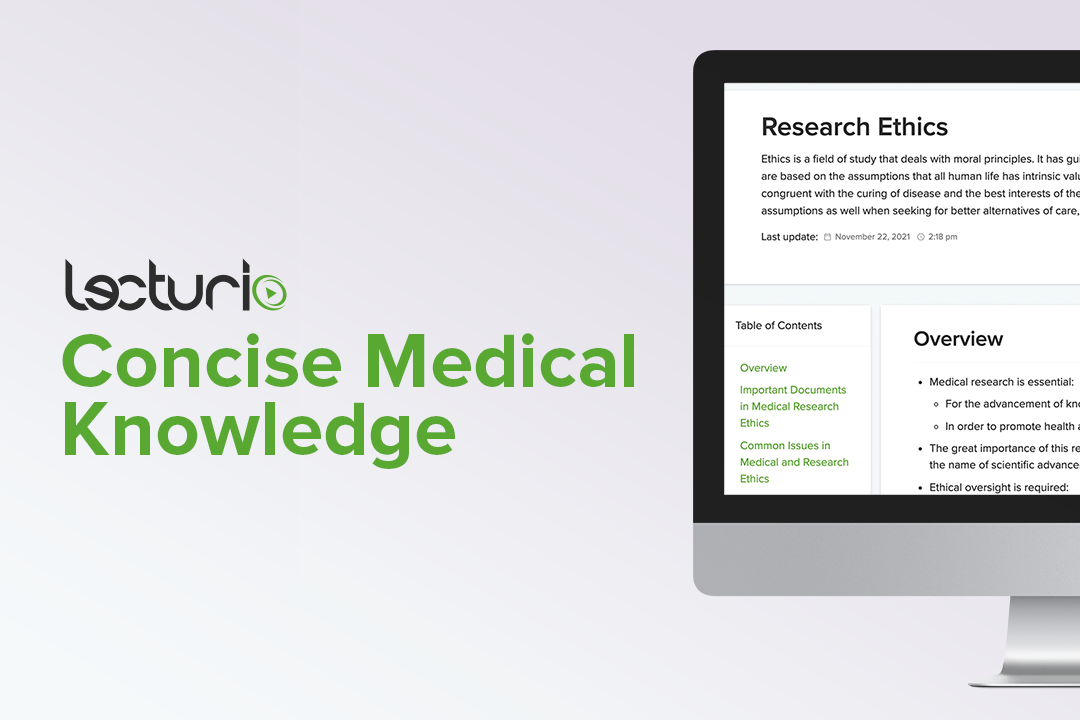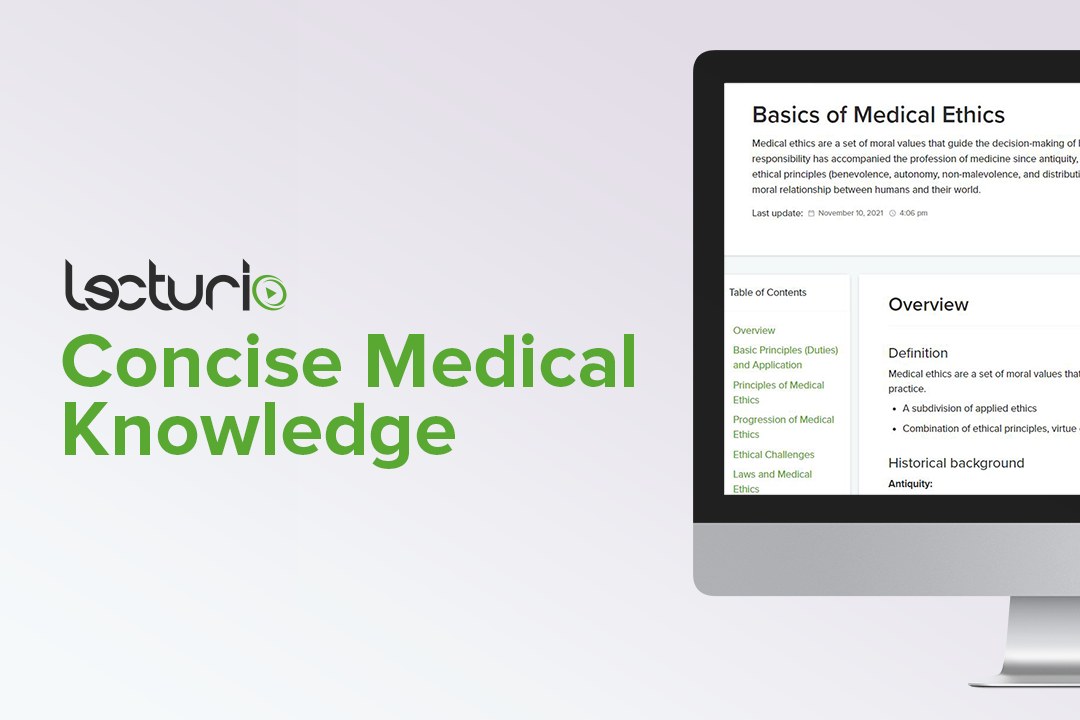Playlist
Show Playlist
Hide Playlist
Research Ethics Boards
-
Slides 15 ResearchEthics Epidemiology.pdf
-
Reference List Epidemiology and Biostatistics.pdf
-
Download Lecture Overview
00:01 Now let us talk about Research Ethics Boards. The Research Ethics Board is the group of people who assess whether or not your research project is ethical. You require the stamp of their approval before you can probably start collecting data under the auspices of whatever institution you work for. So the Research Ethics Boards, they protect the rights and welfare of human subjects. They review the protocols that scientists like you and I submit to make sure that they fall under certain ethical standards. So they are responsible for ensuring that the risks to participants are as low as possible. They want to make sure that the risks are acceptable in light of the possible benefits. So it's not just about the absolute risk, it's about the risks relative to what you can get out of it. 00:45 They are also in charge of making sure that the document, the informed consent document that you have your subjects sign, is accurate and complete, in that it has to express all the potential risks and benefits that your study offers. In general they are going to oversee the methodology of your study to make sure it is conducted in an ethical manner, meaning the methodology is protective of the rights and safety of your subjects. Important thing to remember about Research Ethics Boards is they don't have the force of law, much like all the agreements we talked about. They are guidelines, however, most ethical institutions, like universities and hospitals, will employ Research Ethics Boards to make sure that any research conducted under their roof is ethical and very often the funding of those institutions depends on whether or not they conform to these ethical standards. So getting board approval is essential for conducting proper ethical research in the modern environment. 01:42 So two kinds of epidemiological research or medical research in general that you would probably submit to an ethics board and first is primary data collection, that's when you're going out as a researcher to collect new data from human subjects and the second kind is secondary data analysis, that's when somebody else has already collected some data and you're analyzing it. Now the second type is very, very common in epidemiological study. That's when we can look through huge data sets or maybe even government data sets, like large-scale epidemiological surveys, in the USA there is one call NHANES, the National Health and Nutritional Examinations Study, that one is quite well studied and is extensive and that's a classic case of secondary data analysis. In both scenarios, primary and secondary data you are required to submit a protocol to a Research Ethics Board. Research Ethics Boards come in a variety of flavors, sometimes they are called Institutional Review Boards, IRBs. Sometimes they are called, Independent Ethics Committees, IECs. Sometimes they are called, Ethical Review Boards, ERBs or sometimes just Research Ethics Boards, REBs. It doesn't matter what they are called, they're doing essentially the same kinds of work. They are assessing your application to make sure it meets a certain ethical standard. So again, they provide the oversight for ethical conduct in all research involving human subjects, there is a parallel board that deals with animal subjects and most boards as well have subcommittees that deal with either health sciences research or social sciences research or etiological research, so long as it involves human subjects, they are going to examine your protocol to make sure it is as ethical as possible. 03:24 So the things that research ethics boards look for in submissions. First and foremost they are looking for a proper informed consent, how are you going to acquire informed consent, how are you going to communicate those risks, do you have a document that is defensible in the legal environment. If you're looking at vulnerable groups, can you justify the targeting of those groups. Vulnerable groups include children, the mentally impaired, aboriginal groups perhaps or socially or economically depressed groups, groups who have historically or traditionally been coerced into behaviors or participation. So if you're going to be studying a vulnerable group, your ethics application has to be especially well-written and clear in justifying why it's important. Have you expressed the fullness of the extent of risks that your subjects will be exposed to and can you justify those risks, have you sought to minimize those risks and again, risk can be physical or psychological, or even social or economic. Incentives have to be spelled out as well. Sometimes we like to offer a financial incentive or gift of some kind for someone to participate in our study. Keep in mind, offering an incentive can be seen as coercion, so this is why it is a delicate act of offering a gift, a thank you, some expression of gratitude, as opposed to a direct manipulation of a subject or coercion of a subject to participate, so a balancing act must be expressed. How many benefits does your study offer the subject? Sometimes they offer none at all, that's okay, but you have to be clear about that. Now how is the data going be taken care of. Every research project involves a collection of data, usually it's stored electronically these days, so how will your data be stored? Will it be secure? Will it be on a network computer? How long will you keep it? Who will have access to it? Will it be just you or you and your research assistant, you and your employer? All these elements have to be expressed in your protocol so that the committee can decide whether or not your data management strategies are ethical in respecting the rights of confidentiality of the subjects. Speaking of confidentiality, how much of it do you offer your subjects. 05:43 For example, if your study involves asking people's opinions on matters, it's a qualitative research project and you're going to publish their opinions and attribute their names to those opinions. That's not a lot of confidentiality being offered, on the other hand, if you're going to decapitate your data and by decapitation I mean, remove the heads, remove the identifying features, remove the names or anything I could use to identify who it is who gave me those responses. Well that's a degree of anonymity or confidentiality that is positive, it shows that you are respecting your subjects' privacy. And also, can the subjects withdraw, this is key. 06:24 Perhaps someone agrees to participate in your project, but then finds it's far too much of a problem or maybe the risks outweigh the benefits and they want to leave. You have to find a way to let them leave, without any sort of penalty. They cannot be coerced into staying in the research project if they don't want to. Now if they do leave, you have to explain what happens with their data. Will it be deleted? Will it be kept? Will the subject have the option of what happens to their data?
About the Lecture
The lecture Research Ethics Boards by Raywat Deonandan, PhD is from the course Research Ethics.
Included Quiz Questions
What is a research ethics board?
- A group of people who assess whether the research is ethical or not.
- A group of people who conduct research.
- A group of people who conduct surveys.
- A group of people who protect human rights.
- A group of people who review the scientist protocols.
Which of the following does not belong to the research ethics board?
- Board of Consciences
- Ethical Review Boards
- Institutional Review Board
- Independent ethics committees
- Research Ethics Board
Which of the following describes when a researcher collects novel data from human subjects?
- Primary data collection
- Secondary data analysis
- Data manipulation
- Tertiary data collection
- Informed written consent
Customer reviews
5,0 of 5 stars
| 5 Stars |
|
5 |
| 4 Stars |
|
0 |
| 3 Stars |
|
0 |
| 2 Stars |
|
0 |
| 1 Star |
|
0 |





